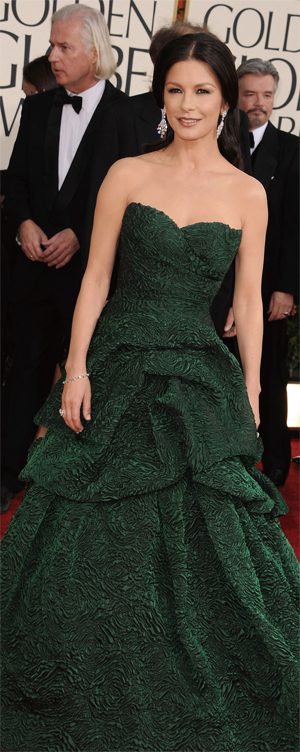奢侈品在中国 未来走向何方——中国本土奢侈品品牌正面临挑战

The Luxury Brand Market in China
China’s love of contemporary culture and expensive brand labels has seen a nation of Chinese tourists heading overseas toward London, New York and Paris for global fashion hotspots. Luxury brands such as Chanel, Rolex and Lacoste have captured the hearts of China’s post-80s generation who see western culture as a beautiful and glamorous lifestyle. At present, China is the second largest consumer of luxury goods consuming 27.5% of luxury products in the world.
Luxury brands have come to value China for its supply of youthful high-end consumers, where currently 75% of luxury purchases are from people under the age of 40. This is in stark contrast to the dominant senior adult consumer demographic in developed countries. 中国海外游客对于当今时尚生活方式的追捧以及对奢侈品的狂热度已直追伦敦、纽约和巴黎。例如像Chanel、Rolex和 Lacoste这样的奢侈品牌已成功捕获了喜爱及追逐绚丽多姿的西方生活方式的中国80后。现在,中国以每年达全球奢侈品消费 27,5%的比例占据世界第二。
奢侈品牌纷纷开始重视其年轻一代的高端消费者,在中国目前的奢侈品购买者中,75%的年龄是在40岁以下。这和发达国家中 年纪偏大的消费者群体形成了鲜明对比。
THE FIRST CHOICE 021 Luxury brand makers scent more profits International luxury brands often develop a new market through cooperation with local business partners who are more familiar with the scene in order to make good headway. But these brands are buying back direct control of their operations from China's local business partners, implying that international luxury brands don't want to share their high profit with others since the luxury market in China is developing at a staggering rate。

Luxury brands wrest back China market To keep their China expansion alive, many of the global players are expected to move into China's second- and third-tier cities in the coming years to tap demand there. Rapid development of high-end shopping malls and retail spaces across the country should help the domestic expansion of luxury groups, especially as mall operators could offer attractive terms to land big-name brands.
Chinese luxury wannabes try to raise their profile Chinese luxury brands may face their toughest battle on the homefront, where shoppers often prefer big international names such as France's LVMH or Hermes that carry more prestige and more than a century of history. They could face an even rougher road ahead as global brands, well aware of China's rapidly growing wealth, launch major expansion campaigns in the country that include opening stores in second and third-tier cities.
奢侈品攫取最大化利润 国际奢侈品牌往往通过和熟悉本国文化和商业环境的本土商业合作伙 伴的共同开发新的市场。但是这些品牌会通过这些本土公司来直接控制经 营,因为中国的奢侈品市场正以惊人的速度发展,谁都不想和别人再去分 享这种高额利润。
奢侈品抢占中国市场 为了保持自身的不断扩张,很多奢侈品品牌都期望在接下来的时间里 转移到中国二三线城市去满足他们的利润增长目标。 现在大型高档的购 物商城和零售场所的急剧增加,这些有助于国内奢侈品集团的扩张,尤其 是著名品牌会更吸引消费者的兴趣。
中国奢侈品品牌试图提升自身销售份额 中国本土奢侈品品牌正面临严峻的挑战,这些挑战来自于例如像 LVMH或爱马仕这样的声名显赫,有着百年多的历史全球知名品牌。比起 全球知名品牌,他们有着更艰难的道路要走。
Luxury brands are losing their exclusivity As more and more young Chinese people can afford global luxury goods, today's luxury goods are becoming t omo r r o w ' s n e c e s s i t i e s . A n i n c r e a s i n g n umb e r o f Chinese people, including white-collar workers and other middle-class groups, are buying luxury goods to reward themselves. As a result, many traditional luxury brands are changing their business strategies to lure them, eschewing exclusivity and welcoming the new source of income.
奢侈品牌正慢慢失去他们的独特性 越来越多的中国年轻一代开始购买世界级奢侈品,今天的奢侈品对于明天来说只是一种必需品。伴随着白领和中产阶级的不断扩大,他们会经常买奢侈品来奖励自己。因此,许多传统奢侈 品品牌正在改变他们的经营策略,以吸引他们,避免排外和文化差异,并欢迎新的消费群体。
Everybody wants luxury, but not at any price The popular Internet shopping forum Taobao, the legitimate traders list their wares. A great number of these online stores are based in Beijing, run from residents' homes. These traders draw on contacts abroad to supply goods that substantially undercut the official outlet price. In fact, the prices are so reasonable that many of those walking down the street are likely to have purchased from these sources.
人人都爱奢侈品,但却不是接受很多合法的商家列出了他们可以供应的货源在著名的网站购物平台淘宝网上,这些大量的网上商店的总部设在北京,很多都 是在居民的家中。这些商家可以直接从海外拿到很多奢侈品,大大低于官方的出口价格。这样,更多的人愿意接受这样合理的价 格会选择从这个渠道购买商品。
Luxury goods can't buy happiness Some white-collar's desire to show off one's taste for elegance locks middle-class Chinese into a competitive struggle to sport the latest and best Italian clothes, designer handbags. But the scramble for luxury products doesn't seem to have made Chinese any happier. Indeed, in the most recent University of Michigan World Values Survey, China ranked 46th in the world with respect to the happiness of its citizens.
奢侈品会带来幸福么很多都市白领渴望通过精美的意大利衬衣、名牌手袋等来展示自己与众不同的品味。但是对这些奢侈品的争抢似乎没有使这 些人们更加快乐。事实上,密歇根大学在世界价值观调查中发 现,中国公民就其幸福感而言的在世界上排名才46位。
- 上一篇:上一篇:呼哈网3月巨献礼送豪礼给“呼哈”女人
- 下一篇:下一篇:奢侈品管理:留学法国大热专业全方位解析

